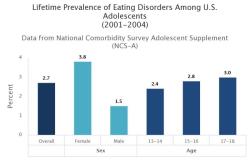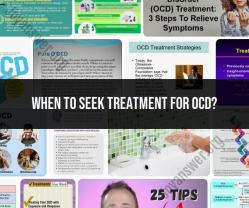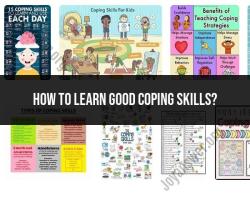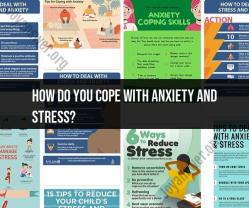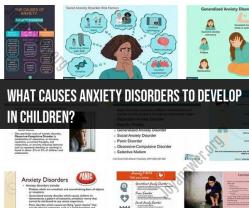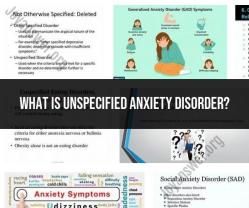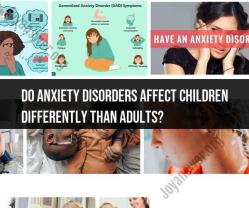What is the best way to help someone with anorexia?
Supporting someone with anorexia nervosa requires a compassionate and informed approach. Anorexia is a serious mental health condition characterized by an intense fear of gaining weight and distorted body image, leading to self-imposed starvation and other behaviors aimed at weight loss. If you are concerned about someone who may be struggling with anorexia, here are some supportive strategies:
Express Concern with Empathy:
- Choose a private and non-confrontational setting to express your concern. Use "I" statements to convey your observations and feelings without blaming or criticizing the person.
Educate Yourself:
- Learn about anorexia nervosa to better understand the challenges faced by those with the condition. Familiarize yourself with the signs, symptoms, and potential consequences of anorexia.
Encourage Professional Help:
- Suggest seeking professional assistance from healthcare providers, therapists, or eating disorder specialists. Offer to help in researching and finding appropriate professionals or treatment centers.
Avoid Shaming or Judging:
- Refrain from making negative comments about the person's appearance or eating habits. Shaming or judging can exacerbate feelings of guilt and shame, hindering the individual from seeking help.
Listen Actively and Non-Judgmentally:
- Be a compassionate listener. Allow the person to share their thoughts and feelings without judgment. Avoid offering unsolicited advice and instead focus on understanding their perspective.
Encourage Open Communication:
- Create a supportive environment where the person feels comfortable discussing their struggles. Foster open communication and let them know you are there to listen whenever they are ready to talk.
Offer Practical Support:
- Assist with practical matters, such as accompanying the person to medical appointments, helping with meal planning, or providing assistance with daily tasks. Offer tangible support without imposing.
Encourage Healthy Habits:
- Encourage the adoption of healthy behaviors rather than focusing solely on weight gain. Promote activities that contribute to overall well-being, such as engaging in physical activities for enjoyment and stress reduction.
Be Patient and Persistent:
- Recovery from anorexia is a gradual process, and setbacks may occur. Be patient, understanding, and persistent in providing support. Celebrate small victories and acknowledge efforts toward recovery.
Involve Family and Friends:
- Involve a supportive network of family and friends in the person's recovery journey. Collaborate with others to create a strong support system.
Understand the Complexity of Anorexia:
- Recognize that anorexia is a complex mental health disorder with biological, psychological, and environmental factors. Avoid oversimplifying the condition or attributing it solely to willpower.
Respect Boundaries:
- Respect the person's boundaries and decisions regarding treatment. Pressuring or forcing someone into treatment may not be effective and can strain the relationship.
Remember that professional help is crucial in the treatment of anorexia. Encourage the person to consult with healthcare professionals who specialize in eating disorders. If the individual is in immediate danger or requires urgent medical attention, don't hesitate to seek emergency assistance.
Always approach the situation with empathy, understanding, and a commitment to supporting the person's well-being throughout their recovery journey.
Supporting someone with anorexia nervosa can be a challenging but rewarding journey. Here are some key aspects to consider:
1. Effective Ways to Support Someone with Anorexia:
- Empathy and Validation: Show understanding and avoid judgemental comments. Focus on listening and acknowledging their struggle.
- Encourage Professional Help: Gently encourage seeking professional help from a therapist or an eating disorder specialist. Offer to accompany them to appointments if needed.
- Prioritize Nutrition and Health: Encourage regular, balanced meals without pressure or focus on weight. Be supportive of their recovery plan established by professionals.
- Focus on Individuality: Remember they are more than their illness. Engage in activities they enjoy and spend quality time together that doesn't revolve around food.
- Set Boundaries: Protect yourself from emotional manipulation or negativity. It's okay to say no to unreasonable demands or unhealthy behaviors.
2. Contribution by Friends and Family:
- Education: Learn about anorexia nervosa to understand the challenges and triggers. This helps in providing informed support and avoiding harmful comments.
- Communication: Maintain open and honest communication, allowing them to express their feelings without fear of judgment.
- Positive Role Models: Model healthy eating habits and body image without focusing on appearance or calorie counting.
- Social Support: Organize outings and activities that don't center around food, create a safe space for them to be around people who care.
- Teamwork: Collaborate with healthcare professionals to ensure consistent and coordinated support for the individual's recovery.
3. Communication Strategies:
- Active Listening: Give your full attention, avoid interrupting, and ask clarifying questions without judgement.
- Focus on Feelings: Encourage them to express their emotions instead of just focusing on food or weight.
- Positive Reinforcement: Acknowledge their progress and efforts, regardless of setbacks.
- Avoid Triggers: Be mindful of topics or situations that might trigger anxiety or negative thoughts related to food and body image.
- Emphasize Hope: Reassurance and encouragement are crucial to maintain their motivation and belief in recovery.
4. Professional Resources:
- Therapists and Counselors: Specialized in eating disorders and can provide therapy and support.
- Nutritionists and Dietitians: Develop personalized meal plans and address nutritional needs during recovery.
- Support Groups: Connecting with others with similar experiences can offer valuable peer support and understanding.
- Hospitalization: In severe cases, inpatient treatment may be necessary to stabilize medical and psychological conditions.
5. Supportive Environment:
- Safe Space: Create a supportive environment free from criticism, pressure, or negativity.
- Routine and Structure: Having a regular schedule and routines can provide stability and reduce anxiety.
- Positive Activities: Encourage hobbies and activities they enjoy that bring them joy and a sense of accomplishment.
- Reduced Stress: Help them manage stress through relaxation techniques or activities they find calming.
- Open Communication: Foster open communication within the family and with the individual about needs, concerns, and progress.
Remember, recovery from anorexia is a marathon, not a sprint. Be patient, supportive, and offer emotional and practical assistance throughout the journey. With professional help, a supportive environment, and your consistent presence, your loved one can achieve lasting recovery and reclaim their well-being.
It's important to note that these are general guidelines. Always consult with qualified healthcare professionals for personalized advice and support tailored to the individual's specific needs and circumstances.


